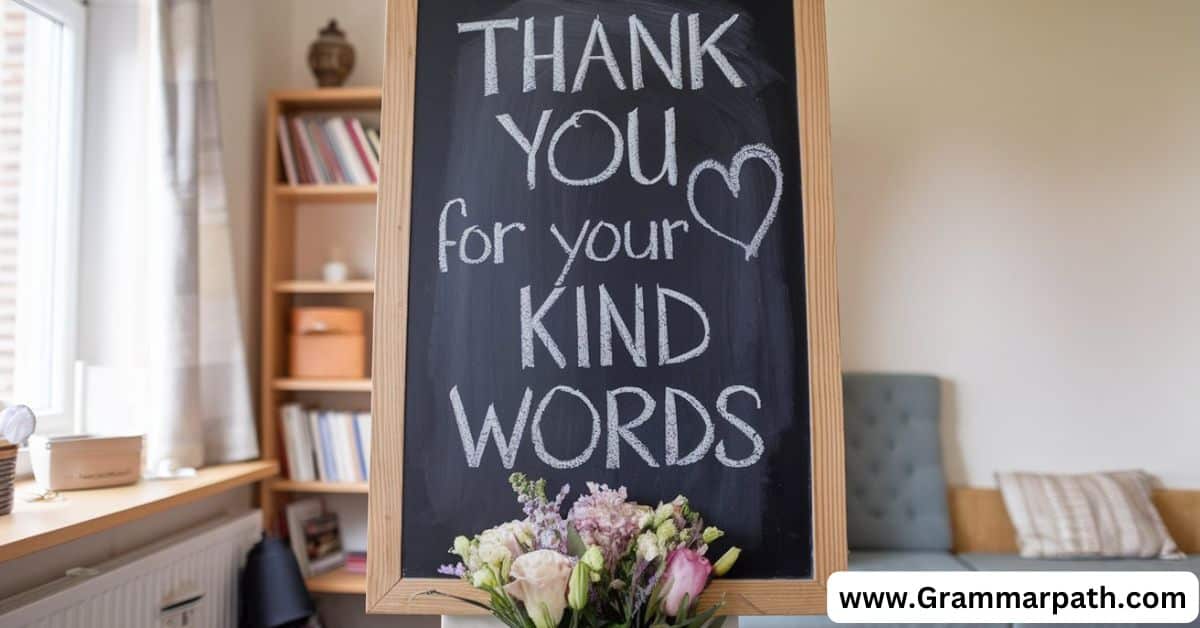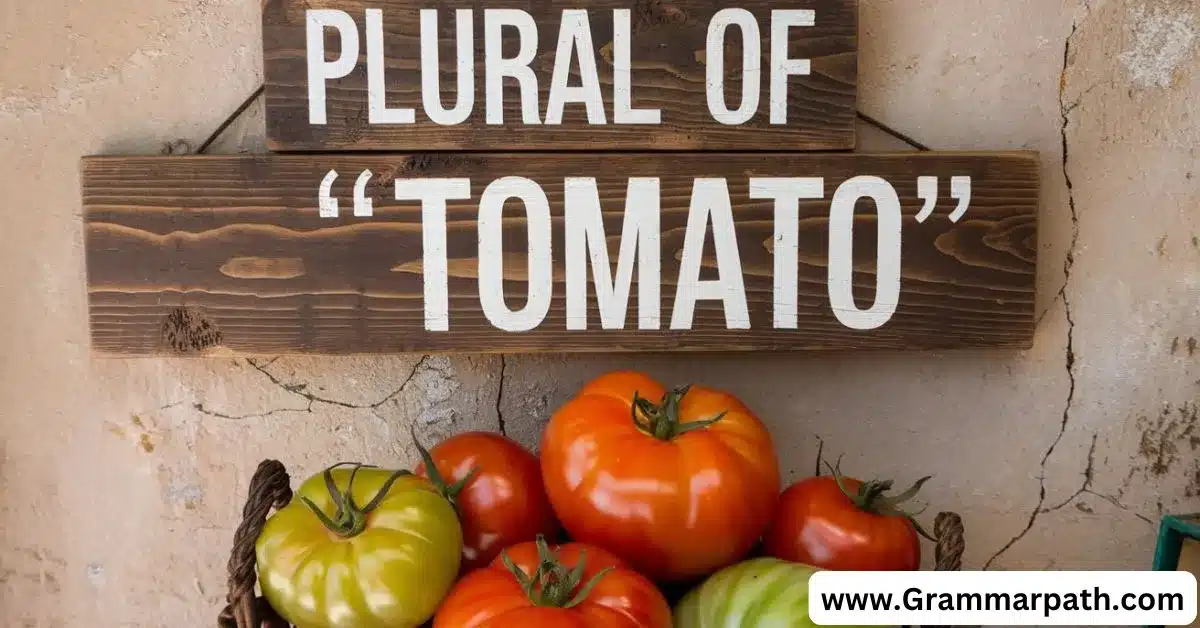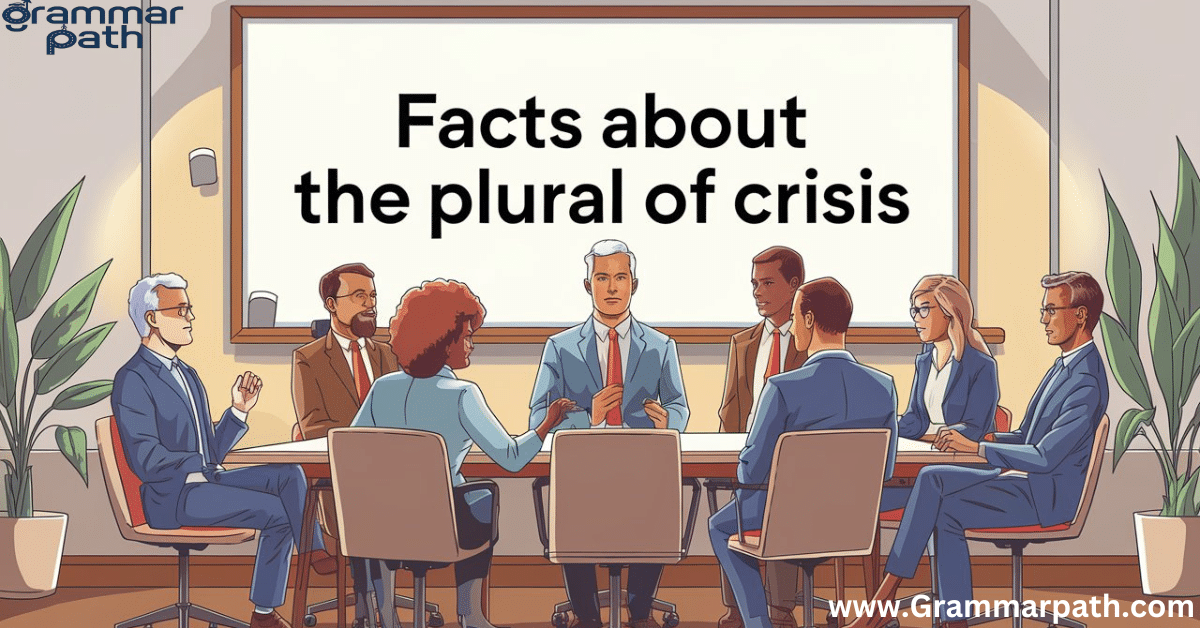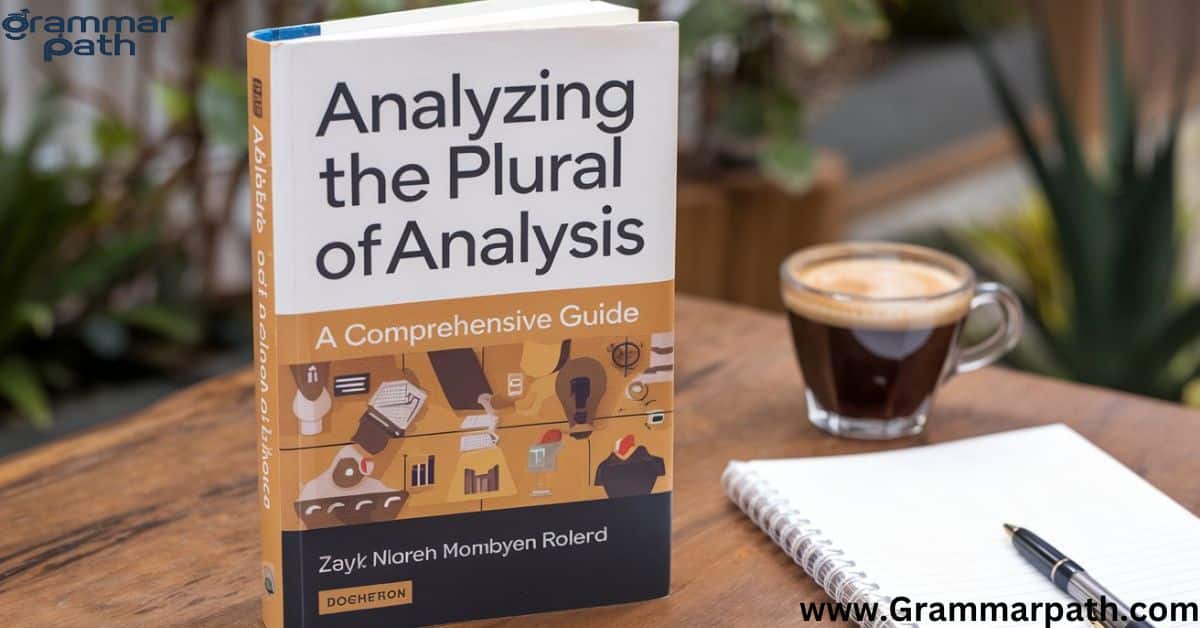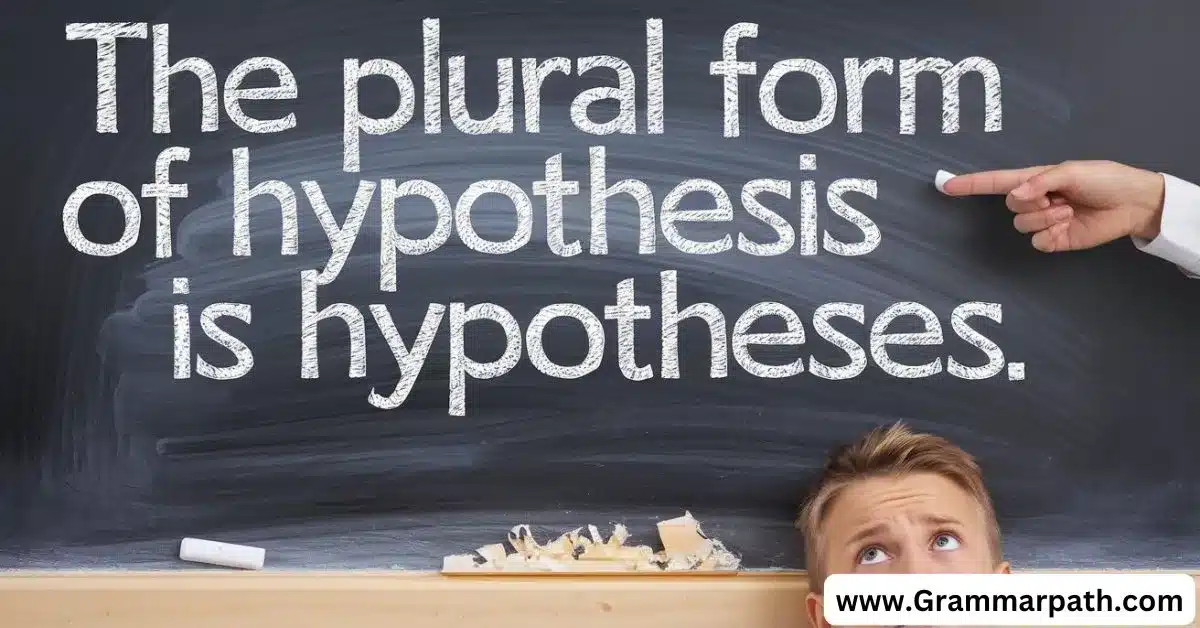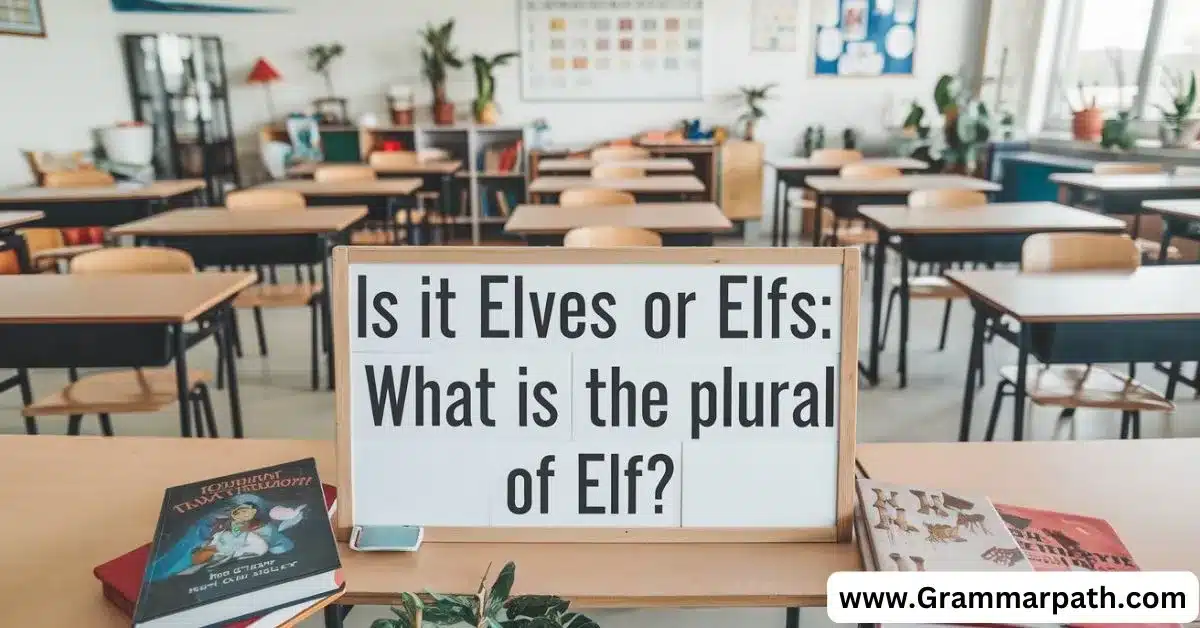
Is It Elves Or Elfs: What Is The Plural Of Elf?
“Is it elves or elfs?” If you’ve ever wondered about the correct plural form of the word elf, you’re not alone. This curious linguistic debate often arises during the holiday season, fantasy storytelling, or English grammar lessons. The plural of elf isn’t as straightforward as simply adding an “s.”
Rather, the correct answer involves an interesting twist in English grammar rules. Spoiler alert: it’s “elves,” not “elfs,” thanks to the peculiar ways the English language handles words that end in “-f.”
In this article, we’ll unravel the mystery of pluralizing the word elf and explore why the plural form is elves rather than elfs. We’ll dive into grammar rules, provide usage examples, and address common questions. By the end, you’ll have a clear understanding of how and why to use “elves” properly.
Why Elves Is The Correct Plural?
When discussing the plural of elf, understanding the general rule for nouns ending in “-f” is essential. In English, words ending in -f or -fe often change to -ves in their plural forms.
This rule applies to several nouns, not just “elf.” Words like “wolf,” “calf,” and “half” also follow this pattern, changing to “wolves,” “calves,” and “halves” in their plural forms. This process of forming plurals by altering the ending to -ves adds a unique touch to the language, setting these words apart from standard plural forms where an “s” is simply appended.
Pro Tip: The most important paragraph in this article explains the rule for pluralizing nouns ending in -f or -fe, as it forms the foundation for why we say “elves” rather than “elfs.” By understanding this rule, readers gain clarity on similar plural forms and the nuances in English that lead to irregular pluralizations.
How To Use “Elves” In A Sentence?
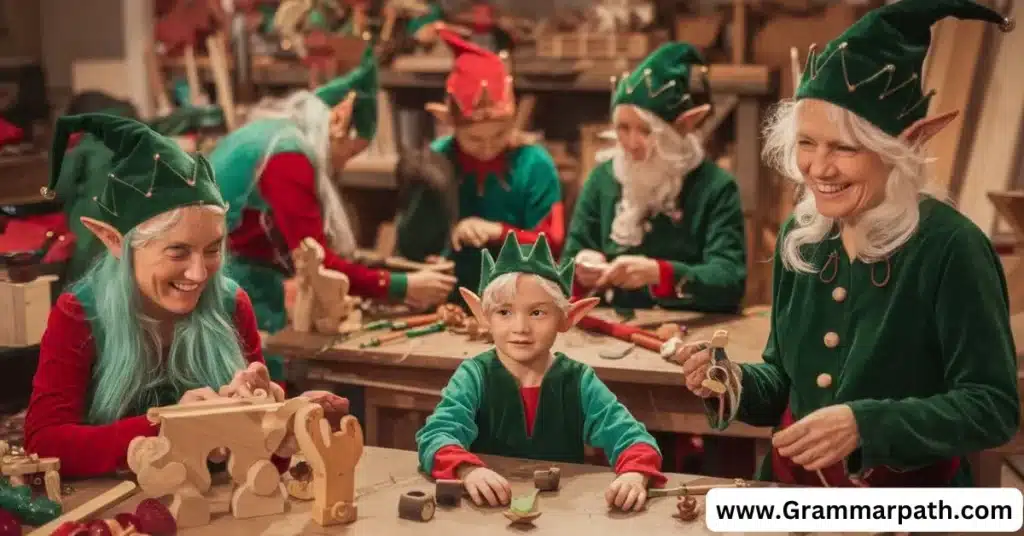
Using “elves” correctly in a sentence is straightforward once you know the rule. Here are some examples:
- Simple Sentences:
- “The elves worked hard to prepare gifts for the holiday.”
- “Santa’s elves are busy all year round.”
- Longer Sentences:
- “Each of Santa’s elves, with their elf-like features and green outfits, diligently worked in the workshop to bring joy to children around the world.”
- “The magical forest was home to dozens of elves who lived in harmony with nature.”
Using “Elves” in Stories
When telling stories involving elves, their plural form enhances the magical and mysterious feel. Here’s how you might include elves in a narrative:
Example:
In a small village hidden in the hills, elves came out every night to collect fallen star fragments. Villagers would sometimes glimpse their glowing silhouettes among the trees, a reminder of the ancient magic protecting their land.
Using “Elves” To Describe Things
Describing objects or scenarios with an elf-like quality can add a sense of whimsy and fantasy. For instance:
- “The house had elf-like decorations, with intricate carvings on the doors and miniature, magical lights.”
What Is The Plural Of Elf?
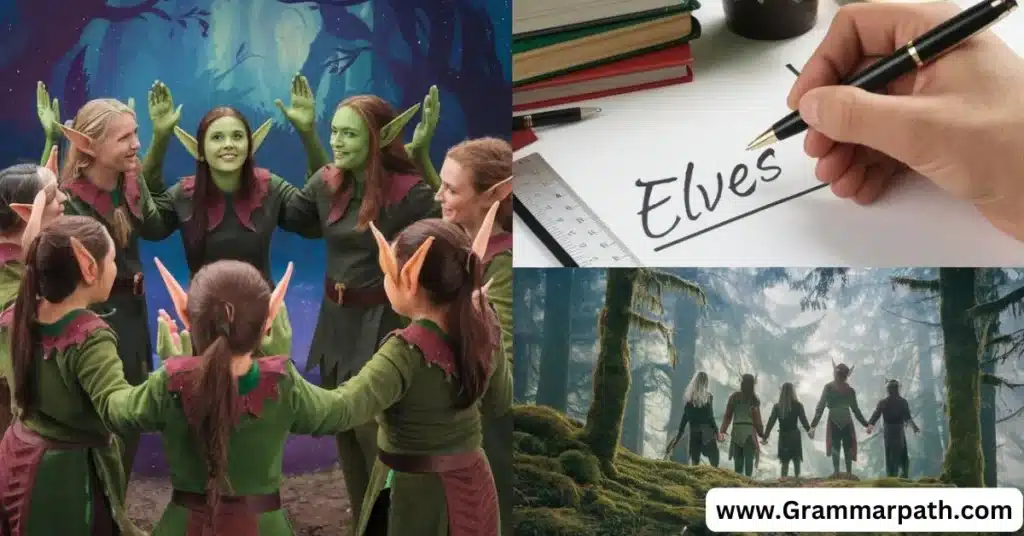
The plural of elf is officially “elves.” This form follows the common English rule for nouns ending in -f, which generally change to -ves in their plural forms. Unlike regular plurals that add only “-s,” irregular plural forms like “elves” often follow historical or phonetic traditions in English, lending these words an older or more traditional tone.
Is It Correct To Say “Elfs”?
While “elfs” may seem like a logical pluralization, it’s not the standard form. The term “elfs” does appear in informal contexts or in older texts, but modern English has accepted “elves” as the correct plural form. Using “elfs” may sound awkward to native speakers, so it’s best to stick with “elves” for formal or everyday use.
Why Is The Plural Of Elf “Elves” And Not “Elfs”?
The English language follows specific patterns for pluralizing nouns, especially those that end in “-f.” When these words take the -ves ending, it’s not merely about adding letters; it’s a grammatical transformation that aligns with traditional English phonetics. Over time, this rule has solidified, making “elves” the accepted plural form of elf.
Are There Any Exceptions To The Rule For Pluralizing Words Ending In “f”?
Yes, there are exceptions. Not all nouns ending in -f follow this general rule of changing to -ves. For instance:
- Chief becomes chiefs
- Roof becomes roofs
These nouns, often due to their origin or phonetic pattern, retain the standard “s” ending in their plural forms.
Table of Common Plural Forms for Nouns Ending in -f and -fe
| Singular | Plural |
|---|---|
| Elf | Elves |
| Wolf | Wolves |
| Half | Halves |
| Leaf | Leaves |
| Life | Lives |
Frequently Asked Question
What Is the Plural Form of Elf?
The plural of elf is “elves,” following the general rule for nouns ending in -f.
Why Isn’t It Correct To Say “Elfs”?
While “elfs” may seem logical, English grammar prefers the -ves ending for words like “elf,” making “elves” the correct form.
Are There Exceptions to This Rule?
Yes, some words ending in -f, like chief and roof, simply add “s” to form their plurals.
Conclusion
In summary, the correct plural of elf is “elves,” not “elfs.” This form follows English grammar rules for nouns ending in -f, where the plural often shifts to an “-ves” ending, as with “wolves” or “leaves.”
While “elfs” may seem intuitive, “elves” is widely accepted in both formal and informal usage. Understanding these pluralization rules helps add precision and clarity to language. So, the next time you’re writing about these magical beings, remember that “elves” is the accurate plural choice!

Emily Olivia is an experienced writer specializing in grammar and English language topics. With a passion for clarity and precision, she shares valuable insights on synonyms, grammar rules, and writing tips to help readers enhance their language skills on Grammar Path.

